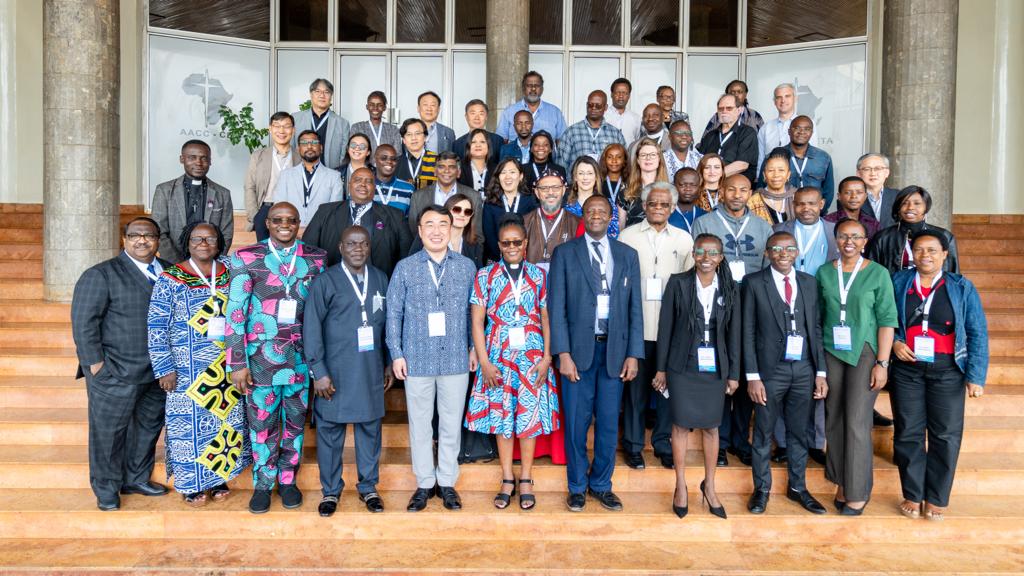All Africa Conference of Churches convenes consultation
The consultation leading to the global launch of the Transformative Ecumenism (TE) movement opens with an inspiring keynote address from a young female theologian – Rev. Lydia Chemei.
Convened by The All Africa Conference of Churches in partnership with the Council for World Mission (CWM), the consultation is taking place at the Desmond Tutu Conference Centre in Nairobi, Kenya.
The event has brought together 60 participants from various faith-based organizations, theological institutions, churches, and civil society organizations from 26 countries to launch an ecumenical Movement that promotes “Life with Justice and Dignity for all.’’
“Since the beginning of the transformative ecumenism movement consultative process in 2013, there have been several events organized by CWM under the project, Legacies of Slavery, on the way to this event,” noted Fr. Dr. John Njoroge, Executive Secretary for Theology and interfaith Relations (AACC) while describing the purpose of the consultation. He described the Transformative Ecumenism Movement as a movement that provides an opportunity for a new mind shift and inclusion of communities, people, and partners calling for the transformation of life, as a response to the current and emerging challenges facing the world today.
The participants were welcomed by Rev Dr Fidon Mwombeki, the General Secretary, and Rev Dr Lesmore G. Ezekiel, the Director of Programmes at the AACC. Rev Dr Jooseop Keum, General Secretary, and Dr Sudipta Singh, Director of Programmes at CWM, also made welcome remarks.
The keynote address was made by Rev. Lydia Chemei; an ordained minister in the Reformed Church of East Africa (RCEA), and a doctoral student at St. Paul University, Kenya. Describing herself as an African woman with an inclination to postcolonial and womanist criticism, she emphasized the need to embrace the changing dynamics around global Ecumenism. “Our World today is challenged by troubled economic trends, repressive governments, climate change-induced catastrophes, challenges of health amidst weak health systems (especially for some contexts), realities of unethical leadership, the challenge of cultural and traditional practices which undermine life, the reality of misleading theologies, and violent theologies, violent extremism, movement of people (migration and displaced persons), among others” she noted, as she stressed that the TE movement is urgently needed to address these challenges. “We recognize that the journey is ongoing since the ground has been laid and some milestones achieved, but there is a need to push even further!” She continued.
During her address, Rev Lydia led her audience in rereading the text in Luke 13:10-17, which she used to discuss five pillars of the TE Movement:
- Listening is an invitation to journey with those at the margins by offering a shared platform in which they get to lead the process of naming their needs and identifying the most suitable intervention actions.
- Co-creating and Collaborating in solidarity with those on the margins.
- Breaking Rules that dehumanize people’s lives and dignity.
- Committing to Gender Justice
- Fostering Hope-Driven Action
The keynote address was followed by panel discussions on wars, war economies and global politics, economic injustice, right–wing ideologies and political repression, climate crisis and Consequences and Addressing legacies in colonialization and slavery, debt bondage and poor governance, forced migration and human trafficking, violent extremism, and conflicts. The consultation continues until 20 August 2023.
“I am impressed by the diversity of presenters, youth, female and male equally represented,” Noted Eva Kyena Abel, a participant from Kenya.

